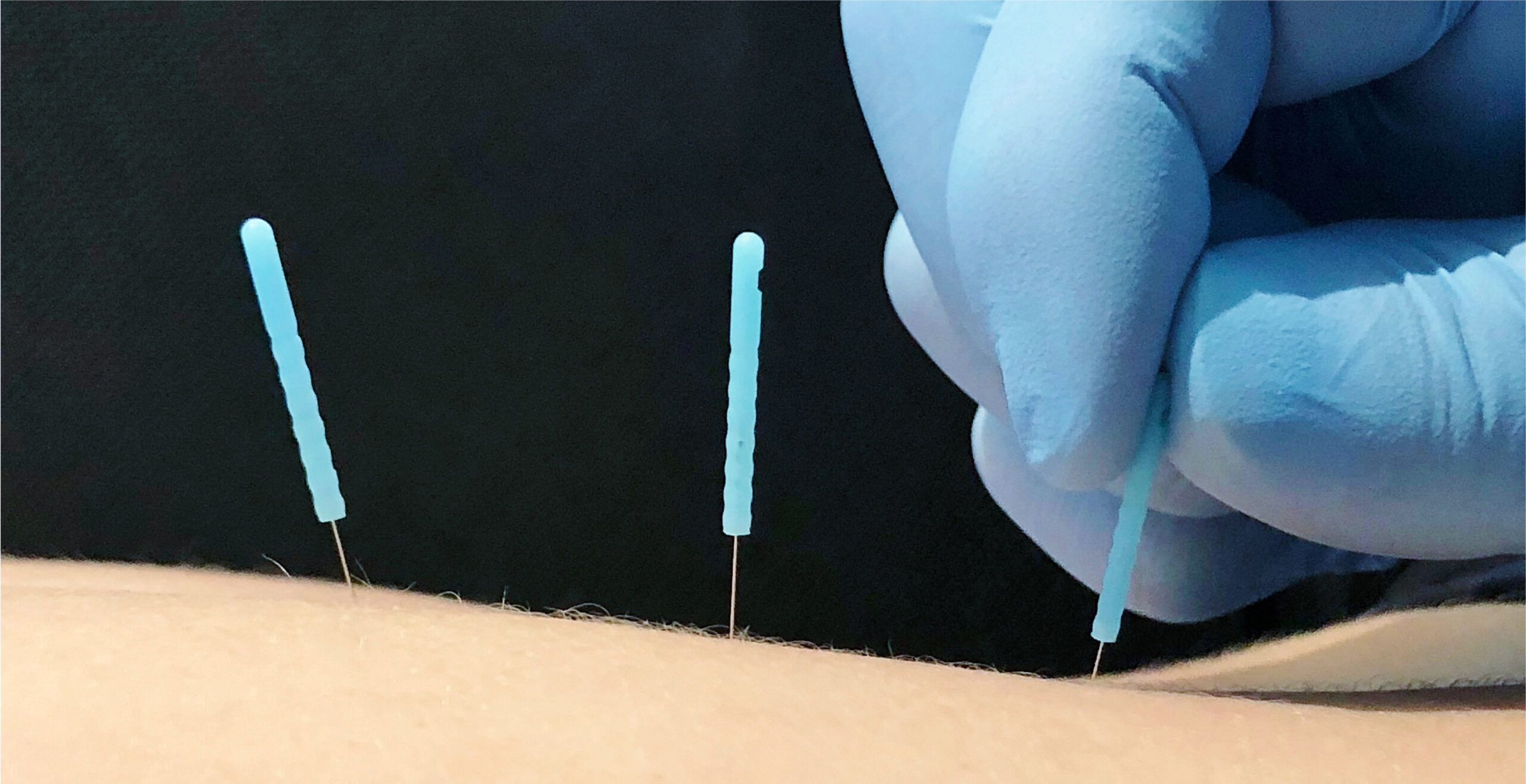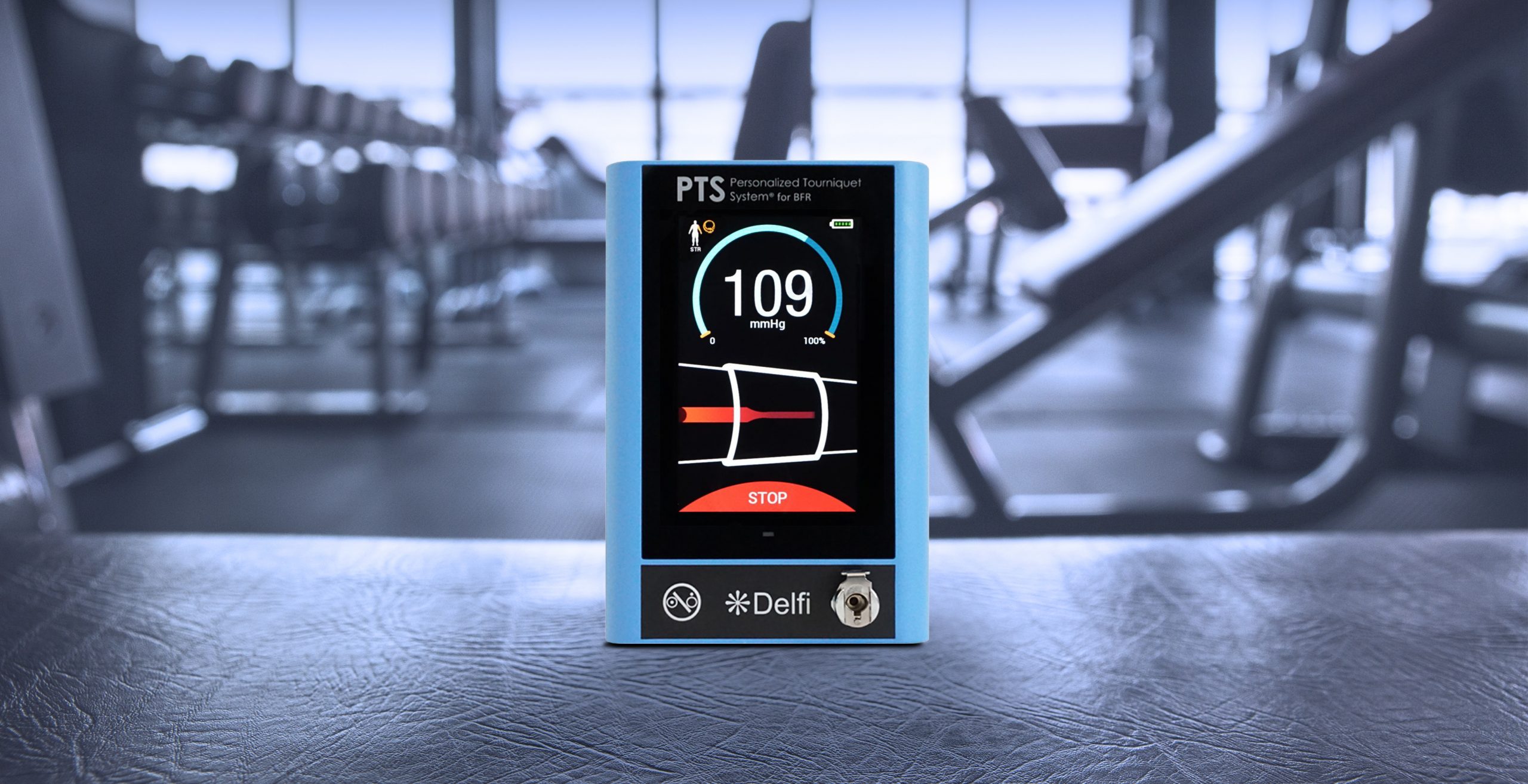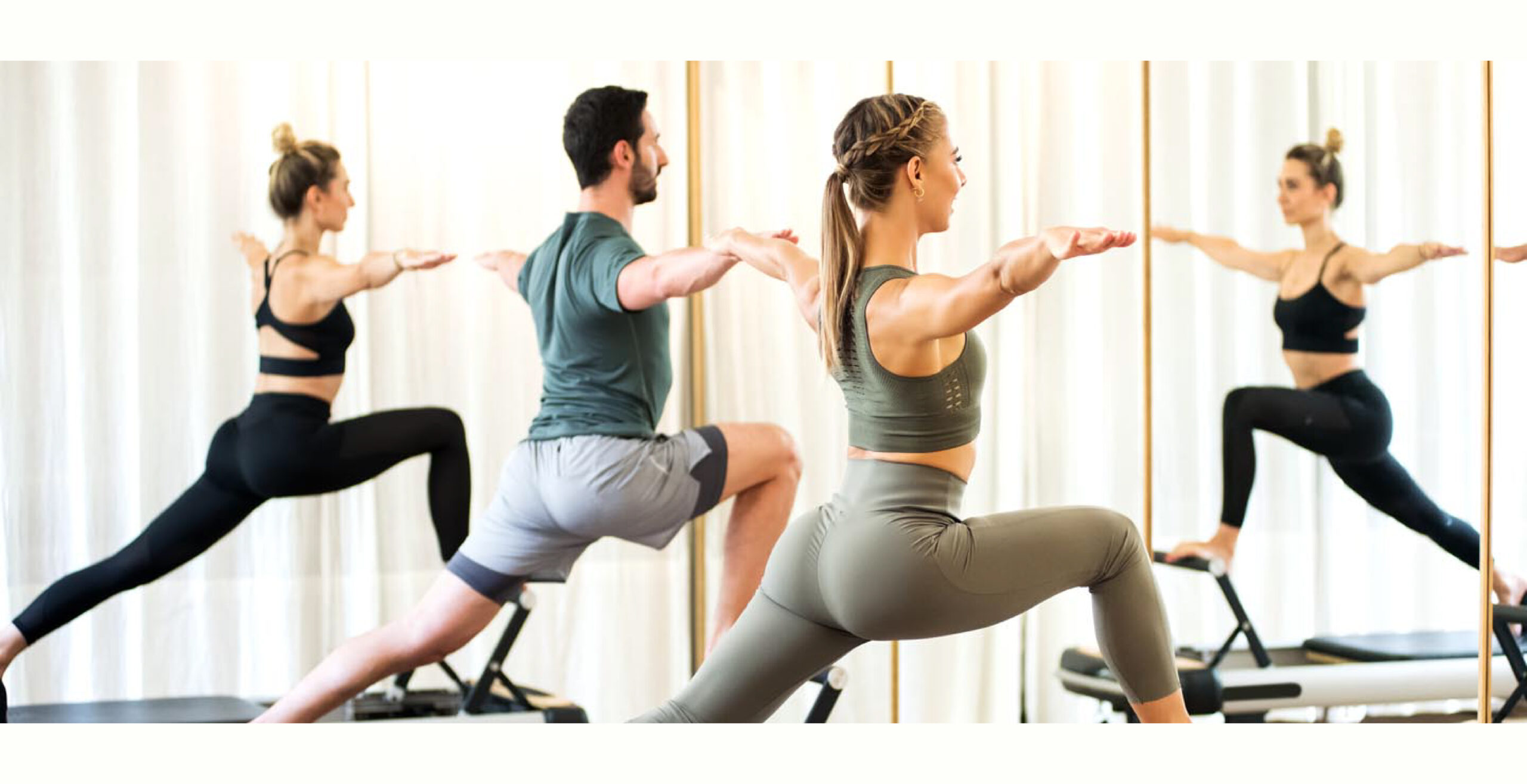
Pilates has become increasingly popular in recent years, and for good reason. It is a low-impact form of exercise that focuses on improving strength, flexibility, and balance. One of the most popular variations of Pilates is reformer Pilates, which involves the use of a machine called a reformer. In this blog post, we will explore the benefits of reformer Pilates, based on the latest research evidence.
- Improves posture
Reformer Pilates can help to improve posture by strengthening the muscles that support the spine. A study published in the Journal of Bodywork and Movement Therapies found that Pilates can improve spinal alignment and posture in healthy adults. The resistance provided by the reformer machine can also help to target specific muscles in the back, shoulders, and neck, which can help to alleviate pain and discomfort.
- Increases flexibility
Reformer Pilates involves performing exercises in a range of positions, which can help to improve flexibility. A study published in the Journal of Sports Science and Medicine found that Pilates can improve flexibility in healthy adults. The reformer machine provides resistance, which can help to increase the range of motion in the joints.
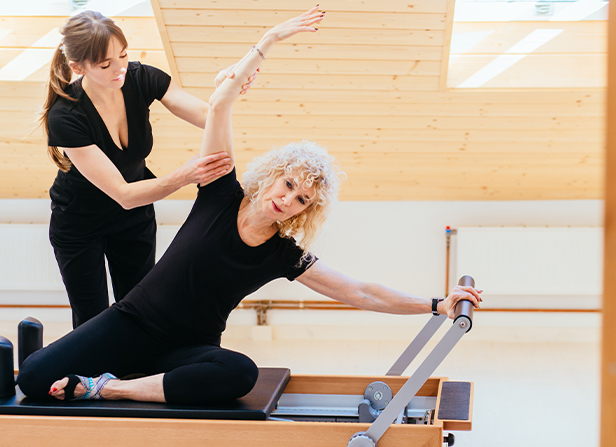
- Builds core strength
The core muscles are essential for maintaining good posture, balance, and stability. Reformer Pilates involves performing exercises that target the core muscles, such as the abdominals, back, and hips. A study published in the Journal of Strength and Conditioning Research found that Pilates can improve core strength in healthy adults. The resistance provided by the reformer machine can help to increase the intensity of these exercises, leading to greater improvements in strength.
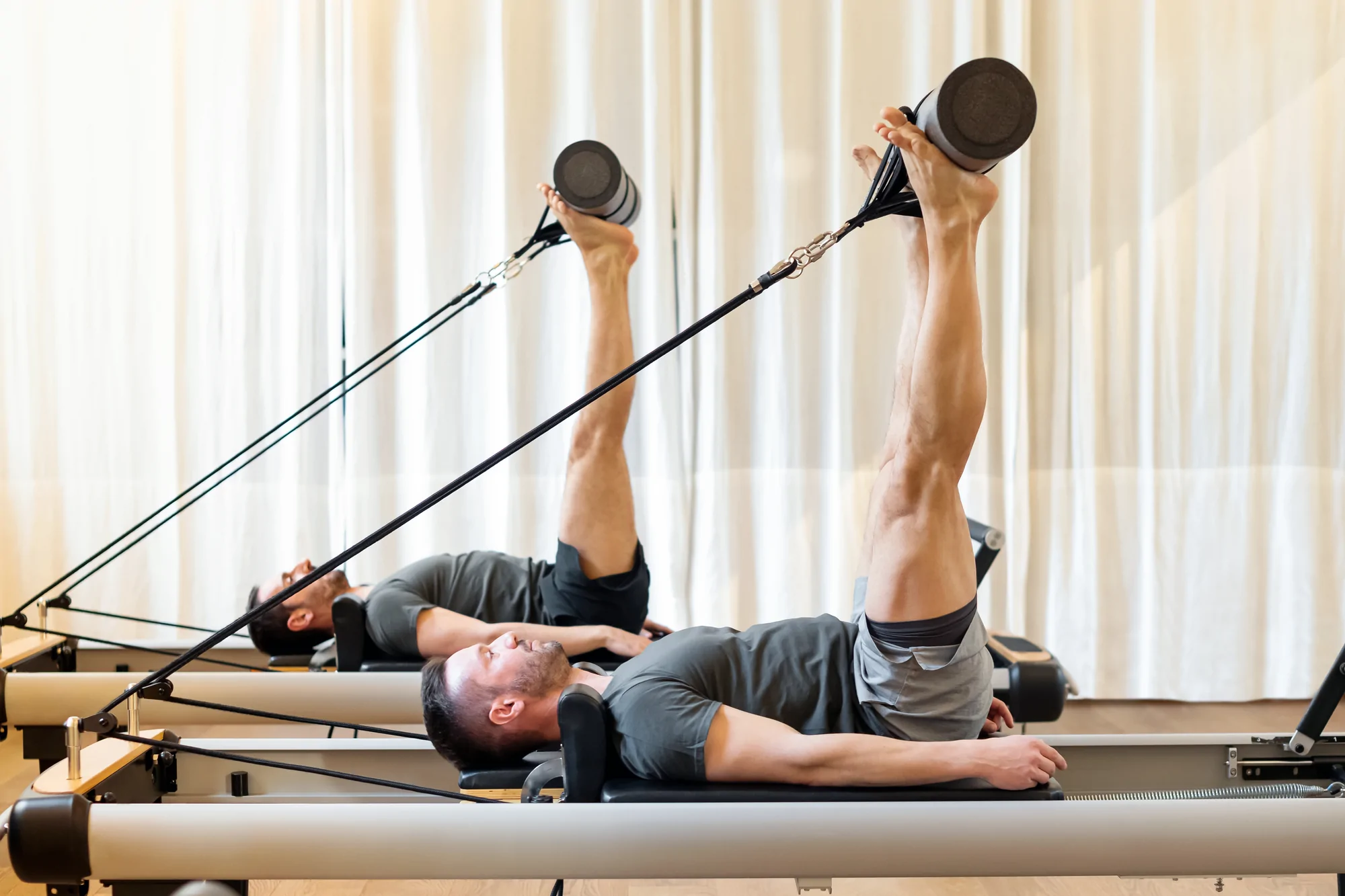
- Low-impact exercise
Reformer Pilates is a low-impact form of exercise, which makes it suitable for people with injuries or chronic conditions. A study published in the Journal of Physical Therapy Science found that Pilates can improve balance and stability in people with chronic low back pain. The reformer machine provides support and reduces the impact on the joints, making it a safe and effective form of exercise.
- Reduces stress
Exercise is known to have a positive impact on mental health, and reformer Pilates is no exception. A study published in the Journal of Bodywork and Movement Therapies found that Pilates can reduce stress and anxiety in healthy adults. The slow, controlled movements, combined with focused breathing, can help to promote relaxation and reduce tension in the body.
In conclusion, reformer Pilates is a safe and effective form of exercise that can provide numerous benefits for both physical and mental health. The latest research evidence supports the use of reformer Pilates for improving posture, flexibility, core strength, balance, and reducing stress. If you are looking for a low-impact form of exercise that can improve your overall wellbeing, reformer Pilates may be worth considering.
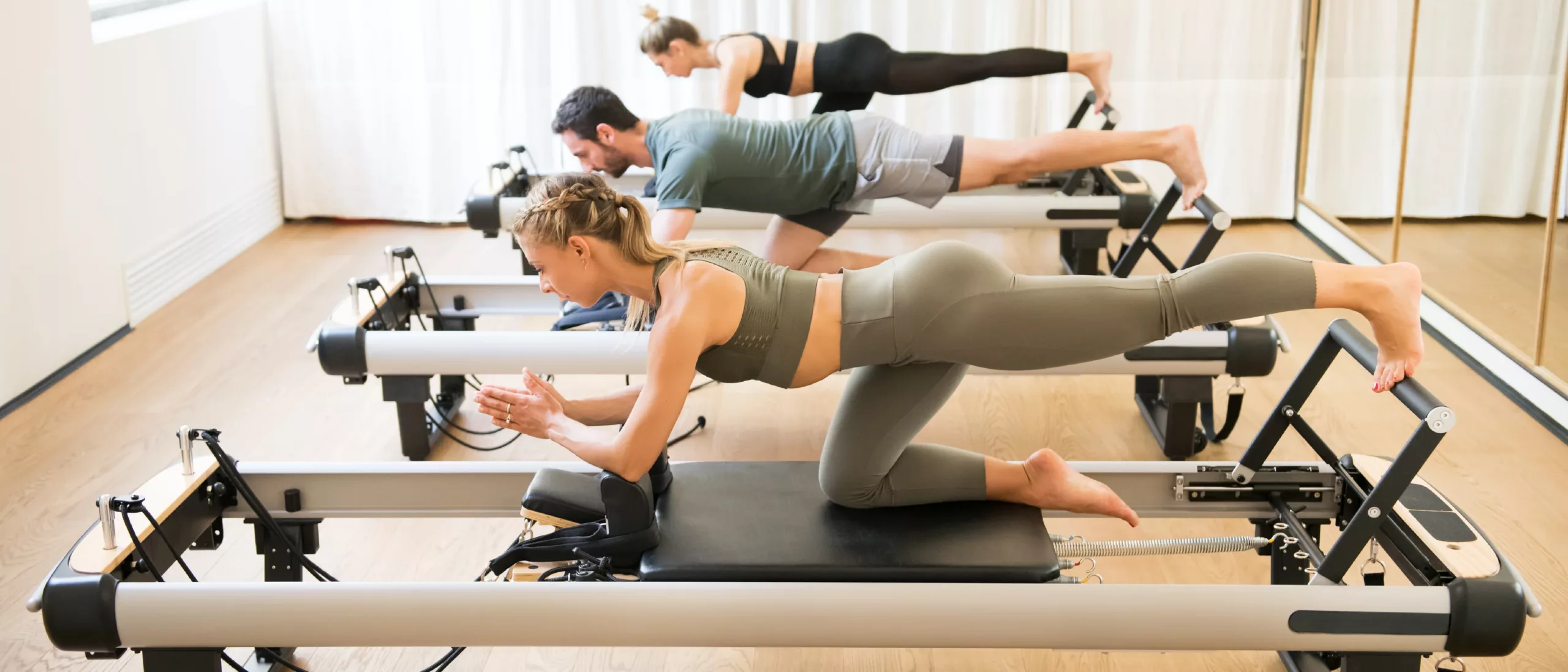
Book your next pilates class or purchase a pack of classes here
References:
- Hrysomallis, C. (2011). Pilates-based exercise for persistent, non-specific low back pain and associated functional disability: A meta-analysis with meta-regression. Journal of Bodywork and Movement Therapies, 15(1), 125-138.
- Latey, P. (2001). The Pilates method: History and philosophy. Journal of Bodywork and Movement Therapies, 5(4), 275-282.
- McSweeney, J., & O’Sullivan, K. (2010). The effectiveness of Pilates-based interventions in treating persons with chronic low back pain: A systematic review. Journal of Bodywork and Movement Therapies, 14(3), 248-255.
- Patti, A., Bianco, A., Paoli, A., Messina, G., Montalto, M. A., Bellafiore, M., … & Palma, A. (2018). Effects of Pilates exercises on sensory interaction, postural control and fatigue in patients with multiple sclerosis. European Journal of Physical and Rehabilitation Medicine, 54(5), 686-693.
- Ribeiro, L. H., & Ribeiro, D. C. (2011). A comparison of the Pilates method and traditional resistance training in improving the flexibility of hamstring muscles in female subjects. Journal of Sports Science and Medicine, 10(1), 54-59.
- Sekendiz, B., Altun, Ö., Korkusuz, F., & Akin, S. (2007). Effects of Pilates exercise on trunk strength, endurance and flexibility in sedentary adult females. Journal of Bodywork and Movement Therapies, 11(4), 318-326.
- Wells, C., Kolt, G. S., & Bialocerkowski, A. (2012). Defining Pilates exercise: A systematic review. Complementary Therapies in Medicine, 20(4), 253-262.
- Zainuddin, Z., & Kadir, A. (2013). Effects of Pilates-based exercises on pain and disability in individuals with persistent nonspecific low back pain: A systematic review. Journal of Physical Therapy Science, 25(6), 703-714.

